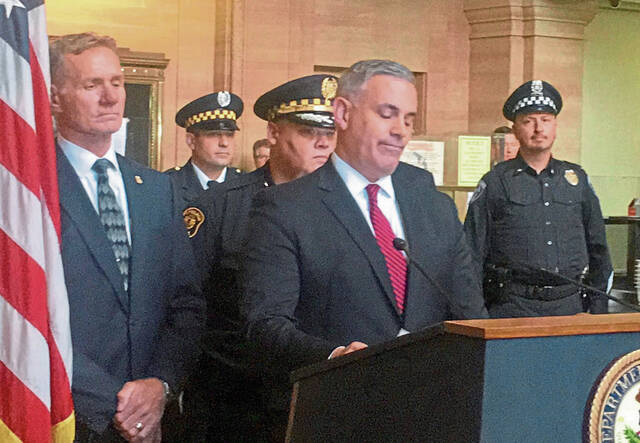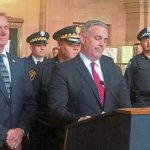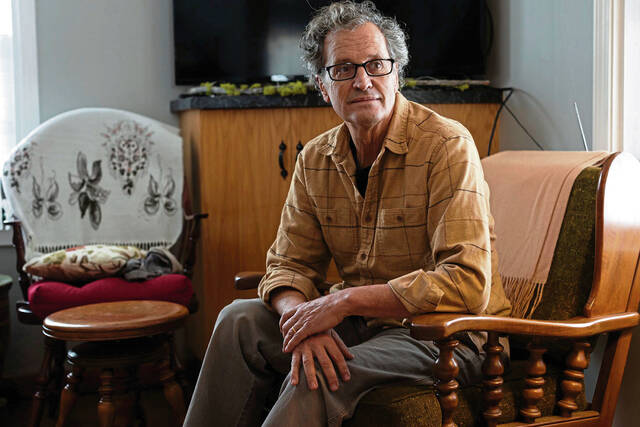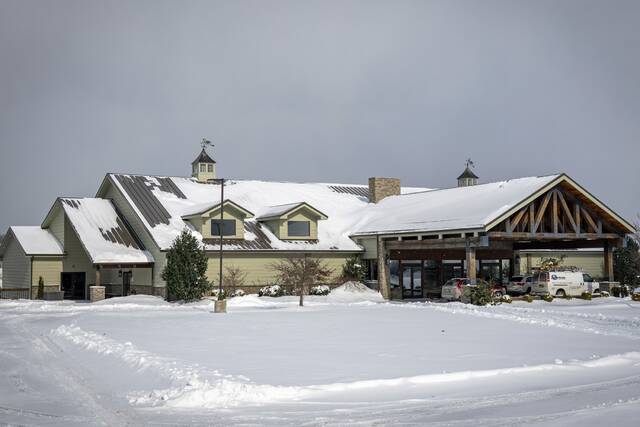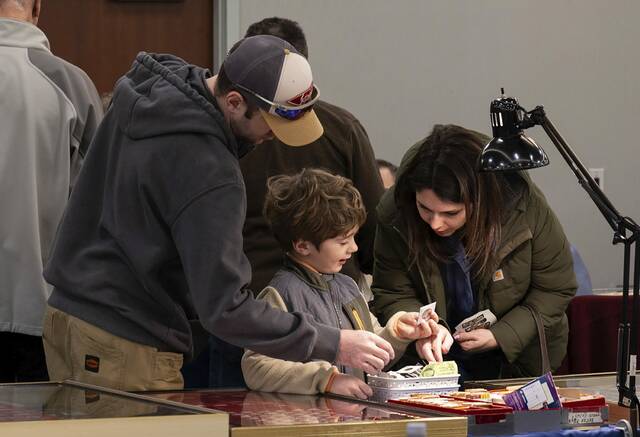The Syrian man accused of plotting to bomb a North Side church in 2019 talked about potentially planting a second explosive device, timing its detonation to coincide with when first responders would begin to arrive, federal prosecutors said Thursday.
That information came to light Thursday, as Mustafa Mousab Alowemer, 23, pleaded guilty Thursday in federal court to a single count of attempting to provide material support and resources to a foreign organization — ISIS.
He will be sentenced by U.S. District Judge Marilyn Horan on Jan. 26. The prosecution suggested that Alowemer’s sentence ought to be 20 years incarceration. The defense, however, suggested an advisory guideline range of 57 to 71 months, suggesting that a sentencing enhancement for an attempted act of terrorism should not be applied.
Two other counts, distribution of information material to the manufacture and use of an explosive device, will be withdrawn by the prosecution at that time.
According to the U.S. Attorney’s office, in the spring of 2019, Alowemer met a person online who he thought was a fellow ISIS supporter. Instead that person was a covert operator for the FBI.
During Alowemer’s online discussions, said Assistant U.S. Attorney Soo Song, he expressed a desire to travel abroad to participate in “jihad.” He also requested a weapon with a silencer and a secure cell phone that could not be traced, and pledged allegiance to ISIS in a video he recorded of himself, the prosecutor said.
“He was motivated to detonate the bomb at the church to support the cause of ISIS and to inspire other ISIS sympathizers in the United States to rise up,” Song told the court Thursday.
Between April 16 and June 11, 2019, Alowemer met with an undercover FBI employee and another person identified as a confidential source, four separate times, plotting to bomb the Legacy International Worship Center on Wilson Avenue on the North Side, Song said.
The first meeting, the prosecutor continued, lasted 3½ hours in Pittsburgh. The group then met again nine days later for two hours.
On May 24 and May 26, 2019, Alowemer sent several Arabic language documents to the undercover operators, which included instructions on how to manufacture IEDs, poisons and toxins, Song said. Two documents were entitled “Beginning Course for Young Mujahideen,” and another “Manufacturing the Easiest Explosive Device.”
At a meeting on June 2, Alowemer identified the North Side church as the subject of his attack, claiming he wanted to target a Nigerian Christian church to show support for ISIS, Song said.
On June 11, they met again, this time with Alowemer providing bottles of acetone, ice packs and batteries and boxes of nails, Song said. He also had with him two printed copies of Google satellite maps with handwritten markings identifying routes of arrival and escape and a 10-point handwritten plan, “Confirmation of this Operation,” that included details of the plot for him to personally deliver the explosives in a backpack.
Alowemer drove the others to the church to assess its environment and discuss where they would leave the bomb. They also discussed routes to escape and where to park, Song said.
It was on that date, Song continued, that Alowemer suggested using a second device, telling the undercovers that such an attack would shut the city down.
The group talked about leaving an ISIS flag near the area with the words “We arrived” on it.
Alowemer wanted to meet one last time, on June 19, 2019, before carrying out the attack the next month. However, at that meeting, to which he brought more boxes of nails, Song said, he was arrested.
Alowemer, who is not a U.S. citizen, came here in August 2016. He appeared in court wearing an Allegheny County Jail uniform and was represented by attorneys from the federal Public Defender’s office.
An interpreter provided translation throughout the hearing, but he answered questions in English, “Yes, your honor.”
Attorney Andrew Lipson told Horan that his client did not agree with the prosecution’s allegation that he had plotted a second attack.
“That truly was not his intention or desire,” Lipson said.
Michael Day, the pastor of the church for the last six years, said that Thursday’s plea provides relief and allows the start of healing process for the church, community and city.
“For our congregation, we really tried to move forward,” Day said. “We are grateful there is some progress.”
The pastor said he heard new details during Thursday’s hearing, including the potential for a second bomb.
“I was thrown, just hearing that, just blew me away.”
Day said that he preaches faith and love, forgiveness and peace.
“It is my desire and hope he learns from this,” Day said. “We don’t hate anyone. We hope this will be an opportunity for peace and for all of us to come together and love one another.”
Acting U.S. Attorney Stephen Kaufman said Thursday that Alowemer’s case is the first by his office to charge a person with providing material support to a terrorist organization.
“He was not prosecuted for his political beliefs or mere thoughts,” Kaufman said. “He would have made it happen if the FBI had not intervened.”




